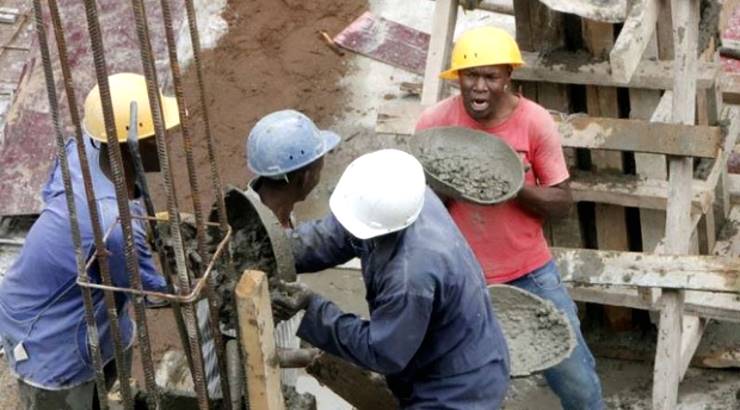Industry News
Quacks in Hard Hats Calling the Shots as Engineers Sit Idle
Safety fears grow as unqualified builders replace qualified engineers.

Kenya’s construction sector is teetering on the edge of collapse, as a flood of unqualified engineers and poor-quality materials puts public safety at risk.
Professional bodies warn that without urgent reforms, a major disaster is looming.
Speaking at the first-ever Women Engineers Convention held recently at Sawela Lodge in Naivasha, the President of the Institution of Engineers of Kenya (IEK), Shammah Kiteme, raised concern over the exclusion of Kenyan engineers from major infrastructure projects.
“Currently, we have been locked out of the contract for the Rironi-Mau Summit expressway, just like other projects, despite the high potential in the country,” said Kiteme.
He added that key contracts are often awarded by public officials and donors without consulting local professionals—compromising the quality and safety of the final work.
This concern was echoed by Margaret Ogai, a board member of the Engineers Board of Kenya (EBK), who highlighted the displacement of qualified local engineers.
“Over 40 per cent of graduate engineers in the country do not have jobs, yet we have major contracts undertaken by foreigners,” she noted.
RELATED: Nairobi Building Approvals in Crisis as System Hits a Wall
At the heart of the crisis is a growing influx of unlicensed practitioners, which Ida Odinga, CEO of Spectre Limited, linked to increasing building collapses.
“It’s worrying that the country has one of the lowest numbers of women engineers, but this can be blamed on imports, which are killing employment opportunities,” she said.
The IEK is also raising alarm about another threat—substandard cement.
In a recent statement, Kiteme revealed that engineers have recorded up to a 25 per cent reduction in the strength of concrete made from several locally available cement brands, even those bearing the Kenya Bureau of Standards (KEBS) seal.
“This is a grave threat to public safety,” he warned, stressing the urgent need for tighter market surveillance and regulation. “The built environment must meet certain performance thresholds to withstand everyday use and natural shocks.”
EBK Chairman Erastus Mwongera added that efforts are underway to create more opportunities for unemployed women engineers. “We are working with the Ministry of Roads so that they can be given a chance as they can deliver,” he said.
As concerns mount, engineers are calling for policy reform, stricter enforcement, and greater support for local professionals to restore confidence in Kenya’s construction sector.














